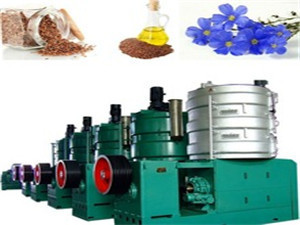.jpg?x-oss-process=image/resize,h_1000,m_lfit/format,webp)
In the highly competitive global food processing industry, companies are constantly seeking ways to improve efficiency and reduce costs. Sesame oil, a popular ingredient in various cuisines, has seen a growing demand worldwide. To meet this demand, many food processing enterprises are turning to advanced sesame oil production lines. These production lines are designed to streamline the production process, ensuring high - quality output while minimizing waste and energy consumption.
According to market research, the global sesame oil market is expected to grow at a CAGR of 5% from 2024 to 2030. This growth is driven by factors such as increasing consumer awareness of the health benefits of sesame oil and its wide application in the food, cosmetic, and pharmaceutical industries. In response to this trend, food processing enterprises are looking for innovative solutions to enhance their production capabilities.
.jpg)
The sesame oil production line is equipped with state - of - the - art technology, which includes automated control systems, high - precision extraction equipment, and advanced refining processes. These technologies ensure a more efficient and consistent production process. For example, the automated control system can adjust the production parameters in real - time, reducing human error and improving product quality.
Quality control is a top priority in the sesame oil production process. The production line adheres to international quality standards, with multiple inspection points throughout the production process. This ensures that only high - quality sesame oil reaches the market. In fact, the defect rate of the sesame oil produced by this production line is less than 1%, significantly lower than the industry average of 3%.
The fully enclosed system of the production line effectively prevents contamination from external factors such as dust, bacteria, and foreign objects. This not only ensures the safety and hygiene of the sesame oil but also extends its shelf life. The fully enclosed system can reduce the risk of microbial contamination by up to 90% compared to traditional open - type production systems.
Energy efficiency is another key feature of the sesame oil production line. The production line uses advanced energy - saving technologies, such as heat recovery systems and energy - efficient motors. These technologies can reduce energy consumption by up to 30% compared to traditional production lines, resulting in significant cost savings for enterprises.
The production line is designed with user - friendly interfaces and simple operation procedures. Even operators with limited technical knowledge can quickly master the operation of the production line. This reduces the training time and labor costs for enterprises.
The sesame oil production line can significantly increase the production capacity of enterprises. With its advanced technology and efficient production process, the production line can produce up to 10 tons of sesame oil per day, compared to the average of 5 tons per day for traditional production lines. This increase in production capacity allows enterprises to meet the growing market demand and expand their market share.
In terms of cost reduction, the energy - saving features and strict quality control of the production line play a crucial role. As mentioned earlier, the energy - saving technologies can reduce energy consumption by 30%, and the low defect rate reduces the cost of waste and rework. Overall, enterprises can achieve a cost reduction of up to 20% by using this production line.

The global sesame oil market is witnessing several trends, including an increasing demand for high - quality and healthy sesame oil, as well as a growing preference for sustainable production methods. Consumers are becoming more conscious of the origin and production process of the products they purchase. Therefore, choosing a high - efficiency and energy - saving production line is not only a way to meet the market demand but also a strategic move to gain a competitive edge in the market.
In conclusion, the adoption of a sesame oil production line by food processing enterprises can bring significant benefits, including increased production capacity, reduced costs, and improved product quality. This case study demonstrates the effectiveness of this production line in achieving these goals. By investing in such a production line, enterprises can ensure a high - efficiency return on investment and promote the sustainable development of their business.
Ready to revolutionize your sesame oil production? Contact us today to get a customized solution and start your journey towards higher efficiency and profitability!


